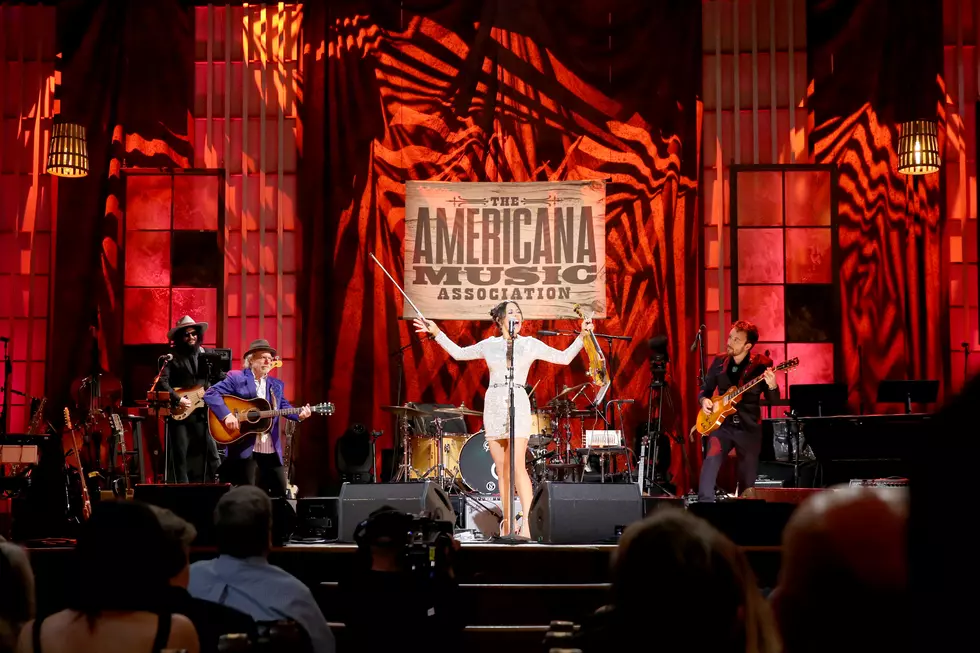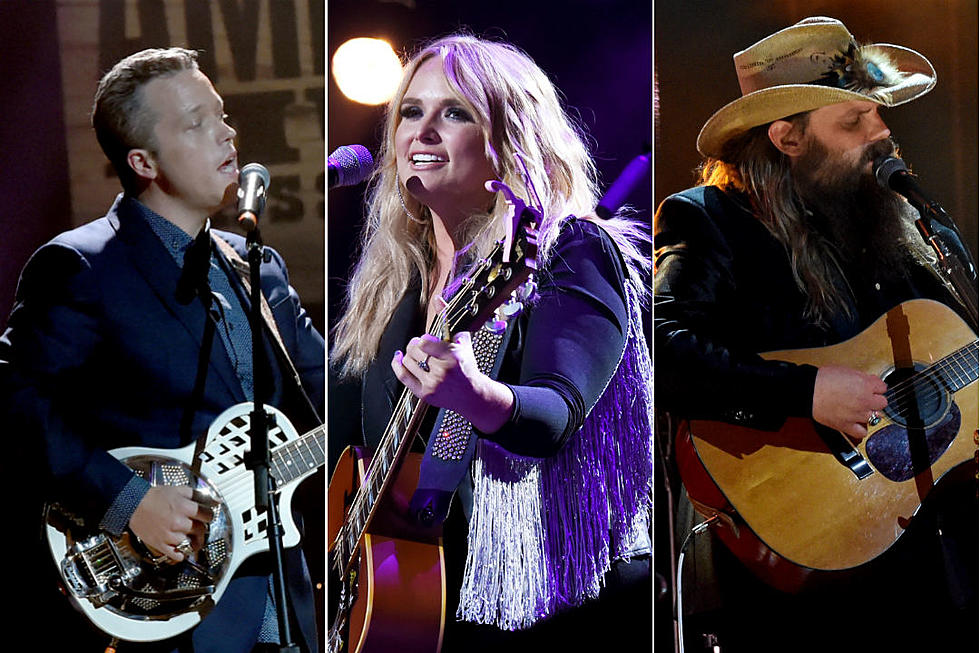
Americana in the 2010s: How an Undefinable Genre Created a Culture of Inclusivity
You can call it what you want, but you won’t hear it on mainstream country radio.
That’s the consensus of Americana’s top musicians and thinkers. And if you haven’t heard the term before, that’s kind of the point: There’s an ecosystem of artists thriving outside of the confines of the country music genre's airwaves.
Americana artists have slowly but surely hit the mainstream during the past decade -- for example, see Brandi Carlile’s Album, Record and Song of the Year Grammy Awards nominations in 2019 or Tyler Childers and Sturgill Simpson’s buzzed-about 2020 tour. However, in a decade of growing awareness and success, one thing has remained the same: Americana’s stubborn resistance to easy explanations.
"'You’ll know it when you hear it' -- that’s the adage we used at No Depression," says Kim Ruehl, former editor the long-running roots music- and Americana-focused publication. Yes, even for the genre's insiders, it’s difficult to define its parameters.
(Attempting to) Define Americana
So ... is it country music? Indie country? Alt-country? Or just Americana?
While it may seem vague, singer-songwriter Jim Lauderdale, who released his 32nd album, From Another World, in 2019, understands the firm boundary between commercial country and Americana better than anyone. In spite of winning several Grammys, writing songs with Buddy Miller and penning a number of George Strait’s many hit songs, Lauderdale’s storied solo career has not included mainstream success in Nashville.
“I had some major-label country releases in the '80s. To me, they were country music," Lauderdale explains, "but, timing-wise, they maybe were too country for country as far as radio was concerned.”
At the end of the day, two elements are key to Americana music: authenticity and a sense of tradition.
“In my opinion, it’s different from country music geared towards the radio in that it is less sterile, more authentic and generally feels more connected to a singular human source,” observes Josh Zanger, head of publicity at Bloodshot Records. The Chicago-based label just celebrated its 25th anniversary and has championed some of the biggest country-adjacent musicians you haven't heard on the radio: Old 97s, Murder By Death, Sarah Shook and more.
“Americana and country music both trade heavily in nostalgia; they're just different kinds of nostalgia." -- Kasey Anderson
Musician Kasey Anderson notes the importance of tradition within the genre: “Americana and country music both trade heavily in nostalgia; they're just different kinds of nostalgia," Anderson reflects. "Within the Americana genre, there is ostensibly less racism, bigotry and misogyny couched in talk of preserving ‘tradition.’”
That Americana is a big tent is foundational for the genre. For Jed Hilly, executive director of the Americana Music Association, that sense of inclusivity is key to the genre’s identity and its own history; in fact, the association was created in response to some traditional country artists feeling excluded by changing trends in commercial country music.
“My overriding principle has always been to be inclusive," Hilly says, though he hesitates to compare Americana to commercial country music. “Americana artists, at their core and at the end of the day, are writing a song to tell a story in the best way they can through music -- period. Whereas, in the commercial country world, they're writing songs to get a No. 1 hit.
"I don't mean to sound disparaging. It's just a different type of art," he adds. "Form one is commercial art; form two is fine art.”
What Is Americana? Its Artists Define the Genre
How Alt-Country Became Americana
In the late 1980s and early ‘90s, bands such as Uncle Tupelo and Jason and the Scorchers played what became known as "alt-country": an aggressive brand of country music that pushed back against the torch songs on the radio. These barnstormers gleefully mixed punk and country music into a potent brew, and their take on country music gained a cult following. Labels including Bloodshot Records, Little Rock, Ark.'s Last Chance Records and Denver, Colo.’s now-defunct Suburban Home Records gave artists a platform well into the 2000s.
However, the word alt-country itself has not survived. Over the course of the decade, labels, artists and publicists have transitioned to using the word Americana almost exclusively.
“To me, ["alt-country"] was a great term. But I think it was butting up against the country music industry,” Hilly explains. “When you're trying to delineate from one type of music to another, the word ‘country’ probably didn't help. You've got one group on Music Row that’s spending tens of millions of dollars marketing what country music is today compared to artists who don't like to market.”
“I think the spirit of ‘When you get to the top, reach back and help the next person’ is real and pervasive in roots music.” -- Kim Ruehl
Ruehl suggests that the term alt-country fell out of use in the early 2000s when the Americana Music Association launched AmericanaFest, its annual conference and festival. In general, Americana is considered a more radio-friendly format that can refer to a number of different styles; alt-country, however, evolved with the artists who identified it, and they themselves eventually outgrew it.
“The artists just kind of branched out beyond the marriage of punk and twang that really drove that community," Ruehl notes.
Bryan Childs, who edited the long-running blog Ninebullets and currently hosts the podcast 9b Radio puts it more bluntly: “I am old enough to remember the emergence of the alt-country label and its subsequent push-back. This s--t is all cyclical.”
The shades of difference between the sub-genres can feel a bit squishy -- but it can be defined by place.
“There's an aural difference between Americana and what I consider roots music,” Ruehl muses. “Roots music is more raw and intimate, and geared to a niche audience, while commercial country/Americana feels like it would make better sense in a large space with a larger, more mainstream crowd.”
From Dive Bars to Madison Square Garden
However, the Americana genre’s popularity has undeniably grown in the last decade. While it was released more than 10 years ago, the O Brother, Where Art Thou? soundtrack made a huge impact on the public’s understanding of traditional country music.
“I was living in Bellingham, Wash.,” Anderson reminisces, “and I remember, almost overnight, all these dreadlocked white guys in Rusted Root T-shirts started carrying around clawhammer banjos and pronouncing Bill Monroe's last name ‘Mawn-ROE.’”
“I don't think you can pinpoint the shift from alt-country to Americana, because that would be backwards thinking,” Von Cloedt, former host of the long-running podcast Americana Rock Mix, points out. While artists including Emmylou Harris and Steve Earle were pushing a traditional country music sound, alt-country was its own animal.
“I think it was all in the timing -- the natural progression of musical change. The old punk rockers and rockabilly kids growing up, maturing and realizing where those musical influences originally came from," Cleoedt offers. But what helped these artists expand from local favorites to a new wave of musicians? “The age of the internet.”
“My overriding principle has always been to be inclusive." -- Jed Hilly
Ruehl, from her perspective at No Depression, has another, unconventional view of the matter: In addition to the Americana Music Association successfully pushing for Billboard charts and Grammy Awards categories distinct from country music, other channels created awareness for the genre. ”People laugh at me for this,” she admits, “but I think Grey's Anatomy was using so many unknown roots musicians, and it boosted the emotionalism of the form for people.”
Of course, there’s also the community itself: “The camaraderie of the community is enormous and not to be overlooked,” Ruehl emphasizes. “Sheryl Crow pulls up Jason Isbell, Brandi Carlile produces Tanya Tucker, T Bone Burnett and Buddy Miller get to be music supervisors on a television show about Nashville and use the songs of struggling legit Nashville songwriters and hire people like Rhiannon Giddens to sit in as actors.”
Whatever happens in the Americana world in the coming decade, there is one constant: solidarity.
“The inter-artist support goes all the way down,” Ruehl continues. “I think the spirit of ‘When you get to the top, reach back and help the next person’ is real and pervasive in roots music.”




